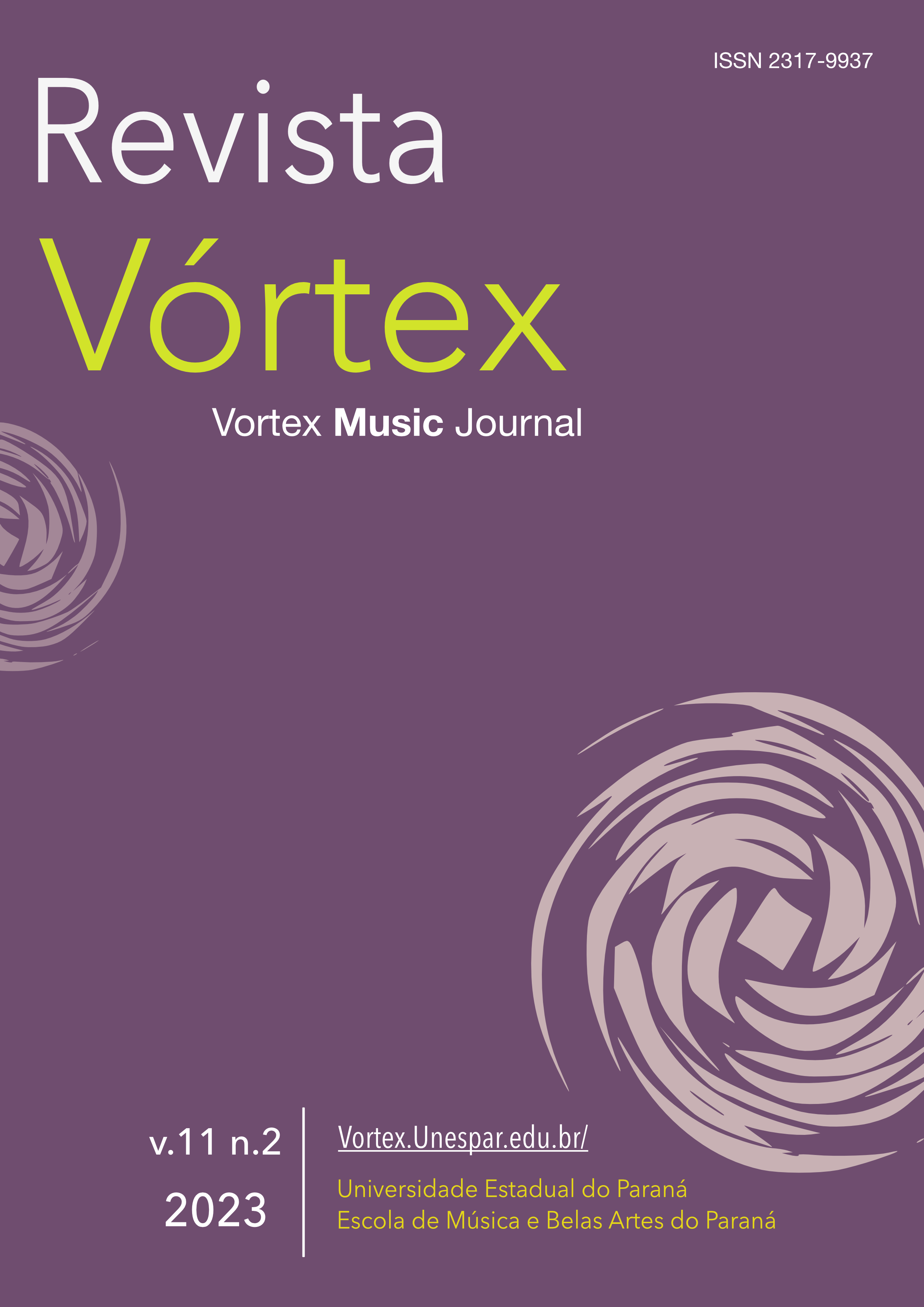Waltzifiability hypothesis
DOI:
https://doi.org/10.33871/23179937.2023.11.2.7619Keywords:
Composition, Musical Discourse, Classical Guitar, Brazilian WaltzAbstract
We present a composition for solo classical guitar. This work comprises four pieces in 3/4 that share the same harmony, but the composition restrictions differ for each. The results are four distinct "waltz" movements. The main contribution of this work is showing composition not as rooted in inspiration, emotions, or innate talent but as a process of learning, critics, and performance. Also is an example of the paradox of choice, i.e., one may be more creative with less freedom of choice. Of course, in this learning environment, the artistic work becomes the musical discourse based on the interaction between the student/composer, the teacher, and the performer.
Downloads
References
SWANWICK, Keith. Teaching music musically. London: Routledge, 1999.
Downloads
Published
How to Cite
Issue
Section
License
Copyright (c) 2023 Angel Tateishi, Amanda Carpenedo, Jean Lopes Baiano

This work is licensed under a Creative Commons Attribution 4.0 International License.
Autores mantêm os direitos autorais e concedem à revista o direito de primeira publicação, com o trabalho simultaneamente licenciado sob a Licença Creative Commons Attribution que permite o compartilhamento do trabalho com reconhecimento da autoria e publicação inicial nesta revista.






